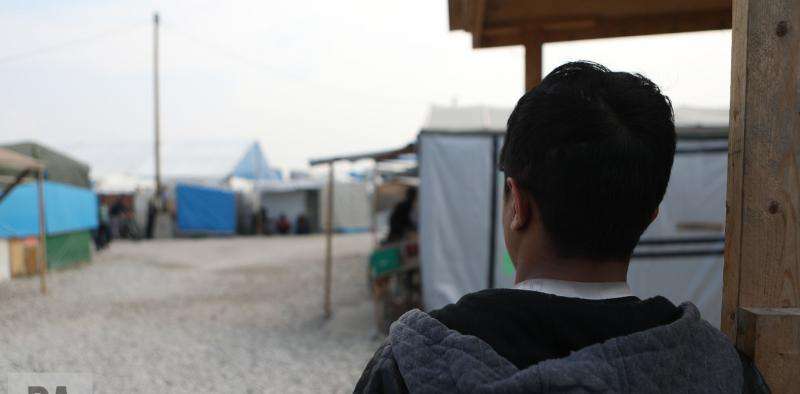Child migrants taken to Britain need support and psychological care

Hundreds of unaccompanied child asylum seekers are being taken to Britain, moved from a camp in Calais, northern France, as its closure begins. There were 387 unaccompanied minors in the French refugee camp known as "the Jungle" with links to the UK and they are arriving in England in groups of 70.
Upon arrival, the children are taken to a secure unit for 72 hours, before being reunited with families already living in the UK. They are from a group of more than 1,000 children who have been living in the camp in recent weeks. And now, some of those without links to Britain, but who are regarded as particularly vulnerable, are now also being taken across the English Channel.
The youngsters were granted asylum under the Dublin Regulation. The children's move to Britain has stalled twice already, over delays in accommodation and establishing proof of age. Migrant children have been subjected to intense media scrutiny upon arrival in recent weeks. Calls for dental checks to verify the true ages of youngsters who looked older were called for, but the UK government branded such a practice as "unethical".
For a long time, the minors living in the camp faced an uncertain future, but the move to take some children to the UK signals a change of tack by the British and French governments. Britain has been criticised for its lack of humanity, but it now seems that the pleas of these children at least have been heard.
Impact of war
While the youngsters may have escaped serious physical injury, the conflicts in the Middle East will have taken a psychological toll on them. Living in the midst of war, many have witnessed unspeakable horror, losing family members in brutal circumstances. Consequently these youngsters are now incredibly vulnerable to mental illness, with research indicating that more than 80% are likely to develop issues such as post-traumatic stress disorder (PTSD).
It is important to remember a child's trauma extends far beyond the experiences that resulted in them fleeing their homes. The children going to the UK now endured prolonged exposure to stress-inducing conditions in the Calais camp, and will now need to adjust to their new cultural surroundings.
War directly affects millions of children everyday. Exposure to conflict and acts of terrorism can lead to the development of acute or chronic stress reactions. Research also indicates that the psychological impact of war on children is likely to have long-term effects – they don't simply "grow out" of their stress-related symptoms. Continued exposure to traumatic events, as these children have experienced, carries a cumulative impact too, that can worsen the severity of post-traumatic symptoms.
Funding challenge
The children going to Britain will need the right sort of trauma-based therapeutic support so they can successfully move forward before chronic conditions take hold. However, mental health services in the UK are desperately underfunded. More than 850,000 children and young people have a diagnosable mental health disorder, and half of all lifetime cases of mental illness begin by the age of 14. But just 7% of the total mental health budget is allocated to child and adolescent mental health services, with one in five young people refused treatment because they do not meet the criteria for care.
A recent poll of specialist nurses found 70% thought child and adolescent mental health services in England were inadequate due to historic under-investment. The government is under growing pressure to invest more, and it is hoped that the arrival of these children will see additional money allocated to the services. When, or even if, this will happen, remains unclear.
Post-traumatic growth
While many of these children are likely to suffer form long-lasting psychological symptoms, there is a possibility that some may emerge stronger than they are now, benefiting in some way from the experience resulting in positive post-traumatic growth, or PTG. PTG is possible in children who have been affected by war trauma, particularly if they are young, as they are more open to learning and change. Interestingly, research has revealed that even the negative aspects of PTSD do not "block" growth when children are placed in a supportive environment – found to be the most conducive thing for PTG.
Receiving the proper social support will play an important role in helping these children deal with the psychological effects of war trauma. The complex situation that the young and unaccompanied migrants have faced calls for help that addresses both the trauma and grief, and will secure continuity in their new lives in the UK.
Losing loved ones is just one of many extremely traumatic experiences these children may have faced, and it could prove quite difficult to disentangle the effect of the loss from other stresses and changes. Time does not simply heal the long lasting scars of prolonged stress that they have experienced. However, it is vital that society does not write these children off as ill or broken. With the right support they can lead full lives and make strong contributions in their new homes.
This article was originally published on The Conversation. Read the original article.
![]()















